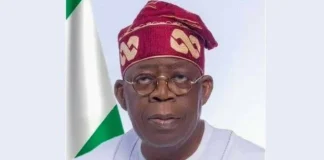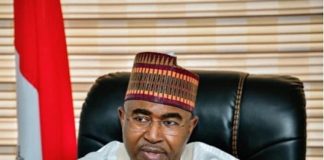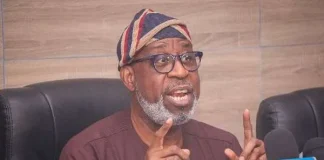🌿 Ruzu Non-Alcoholic Herbal Bitters
Ruzu Non-Alcoholic Herbal Bitters is a natural health supplement specially formulated to:
- ✅ Promote general wellness
- ✅ Detoxify the body
- ✅ Support the treatment of various ailments
Made from a powerful blend of 100% organic and medicinal herbs, Ruzu is completely alcohol-free, making it ideal for:
- 👪 All age groups
- 🌱 Health-conscious individuals
- 🌿 Anyone seeking non-alcoholic herbal remedies
Whether you're looking to boost your vitality, cleanse your system, or support healing the natural way, Ruzu Bitters offers a trusted herbal solution.
Nigeria’s textile industry, once a major contributor to the nation’s economy, has received a significant shot in the arm with the announcement of $3.5 billion in new investments.
Doris Uzoka-Anite, the minister of industry, trade and investment, spoke in Abuja on Tuesday during the sectoral report on President Bola Tinubu’s first year in office.
The minister said efforts have been put in place to optimise the performance of the Nigerian cotton, textile, and apparel industry in collaboration with development partners and private sector players.
This influx of capital, according to Uzoka-Anite, is aimed at “unlocking the textile and apparel industry.” The minister highlighted the sector’s potential for growth, citing Nigeria’s abundant domestic cotton supply and its position as Africa’s largest market.
“So far, we have attracted $3.5 billion to unlock the textile quality apparel industry. As you know, Nigeria’s textile and apparel industry covers the entire clothing value chain and has a strong potential for growth, availability of cotton and the country’s largest market size,” Uzoka-Anite said.
READ ALSO:Nigeria’s equities market sustains momentum with N294bn profit for investors
“This industry is one of the top contributors to the manufacturing sector of the economy with huge potential for employment of both skilled and unskilled labour and with excessive capacity for generating exports early and attracting foreign direct investment and therefore reducing poverty.”
The investment is expected to bring several benefits. Increased production could lead to a reduction in reliance on imported textiles, currently a drain on foreign reserves. Additionally, the industry has the potential to create a significant number of jobs, both skilled and unskilled.
However, challenges remain. The Nigerian textile industry has faced difficulties in recent years, due in part to competition from cheaper Asian imports.
The success of these investments will depend on several factors. Addressing issues like smuggling of textiles and ensuring a competitive business environment will be crucial.
The minister expressed optimism about the government’s collaboration with development partners and private investors. The next steps will be to see how these funds are allocated and what specific initiatives are undertaken to revitalize this historic industry.
If you like what we do, and are ready to uphold solutions journalism, kindly donate to the Ripples Nigeria cause.
















